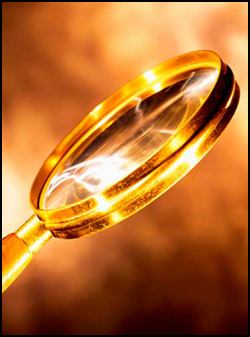 Writers have a reputation for being a bit defensive. Really, it extends to artists and many other creative endeavors. (Hell, it’s really just a human trait.) People are often their own worst critics.
Writers have a reputation for being a bit defensive. Really, it extends to artists and many other creative endeavors. (Hell, it’s really just a human trait.) People are often their own worst critics.
Despite people claiming to be their own worst critics, feelings for what one does are often kept inside. It’s not that often you hear someone genuinely list their weak points in a manner that reveals certain strong points.
Enter John Green
If you don’t know who John Green is…you’re probably not a teenager.
Green writes young adult fiction and has worked sincerely and hard to get where he is today. Like many people who have made it, he’s also a target, recently taking some flak for writing about sick/depressed teenagers (critics say he’s capitalized on misery to make a living). It’s something he’s addressed quite a bit, lately. In this defense, John talks directly about his weak points as a writer:
“…I tell too much and show too little. My plots are thin. I’m too fond of turning phrases. Imagistic stuff gets fogged up by inconsistent usage, especially in my first few novels. I care too much about ideas and not enough about story. There’s a kind of emotional disengagement in my work, like I’m always trying to make you conscious of the fact that this is a fiction and look at all the things this fiction is doing, which leads to people seeing the strings on the puppets and feeling pulled out of the narrative. They can get thematically obvious and repetitive…”
– John Green
Genuine Honesty is Hard
I’ve only read one John Green book, and I agree with his assessment of his writing. Still…I was impressed by the book I read (The Fault in Our Stars). Green also claims he’s not good at writing adult characters, but some subtle moments when adults are present in the book are so well-done that I stopped reading and sat back impressed.
What Green says in the block quote above isn’t a cop-out or a defensive tactic; it really reads like a guy who will always get better because he looks at what he does well…and not so well.
It’s the kind of honesty I’m not sure most people are willing to touch.
The Weak in My Writing
I know what I do well as a writer. And I know where I can improve…
- I also tell too much at times, instead of showing.
- I tend to be lean; I’ve written a chapter in a novel that consisted of a sound effect and nothing else. Other chapters with lesser characters can seem lop-sided to some because they’re short.
- I imagine having to defend the action in my writing, so I try to explain things too much at times in an attempt to cover everything.
- I’m a big sap, although I’m told I do sentiment well.
- I like farting/vomiting/shitting dogs about as much as John Irving likes bears!
- I almost always bring in an element of magical realism to keep my own interest in what I write.
- In chapters where plot is the purpose, I struggle to keep a unified voice with the more literary passages in my stories.
The Good from the Bad
None of what I just said is defensive. I have no problem looking anyone in the eye and saying with confidence: “I am a good writer!” What I shared is what I work to fix as a write, or things that I just flat-out like and will never give up (i.e. farting dogs)!
Almost every time I sit down to write, some of the things on that list are on my mind. These are the things I work hard to improve because I don’t knock myself; I just recognize where I can be an even stronger writer.
What About You?
If you had to come up with a list of your weak points as a writer, what would they be? Feel free to share them in the comments.

Hmm… I’m inconsistent and undisciplined. But those two faults apply to pretty much every facet of my life, so specifically as a writer, I’d say many of my stories tend to:
1. be too lean
2. lack emotion
3. be unbelievable
4. have unsympathetic / unrelatable characters
5. I sure there are other issues, but another weak point is I have trouble seeing my weak points…
Christopher, your own weak points that you listed don’t seem to be big issues in the context of what I’ve read of yours. Plus the simple fact that you can readily identify what you consider weak points in your writing means you are open to growing as a writer. Not many writers are willing to publicly self-criticize, it’s an under-appreciated tool for improving.
It’s funny that we both see lean as a weak point. Some would claim lean writing is a strong point…that it’s not bogged down with flowery prose for the sake of flowery prose.
I should add how lazy I am in a first draft. Some days I want to get to the stuff I haven’t thought about, so I’ll insert tags like [blah blah blah…] or [insert some friggin’ metaphor] if my brain isn’t in the mood to think like that. I won’t let thinking of names for supporting characters that pop up…I’ll just insert [name] and move on.